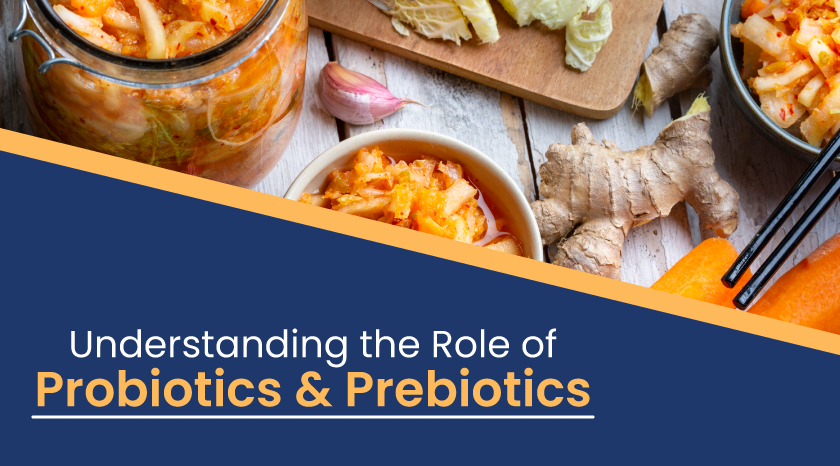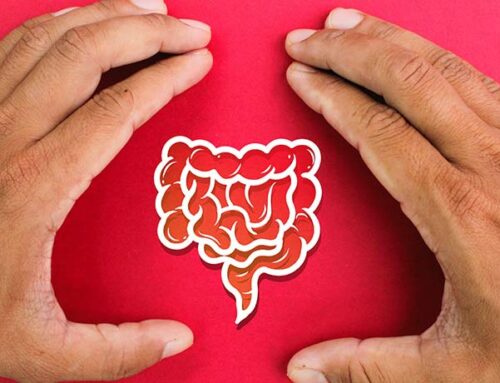In the realm of digestive health, two terms often spark curiosity and confusion: probiotics and prebiotics. While they may sound similar, these two components play distinct yet complementary roles in nurturing a healthy gut microbiome. In this blog, we’ll unravel the differences between probiotics and prebiotics and explore how they work together synergistically to support optimal digestive health and overall well-being.
Understanding Probiotics: The Friendly Bacteria Probiotics are live microorganisms, mainly bacteria and some yeasts, that confer health benefits when consumed in adequate amounts. These beneficial microbes colonize the gut and help maintain a balanced microbial ecosystem, crucial for digestion, nutrient absorption, and immune function. Probiotics can be found in fermented foods like yogurt, kefir, sauerkraut, and kimchi, as well as in supplement form.
Exploring Prebiotics: The Nourishment for Probiotics Prebiotics, in contrast, are non-digestible fibers found in certain foods that serve as fuel for probiotics and other beneficial bacteria in the gut. Prebiotics pass through the digestive tract intact and are fermented by bacteria in the colon, producing short-chain fatty acids that nourish the intestinal cells and promote a healthy gut environment. Common sources of prebiotics include chicory root, Jerusalem artichokes, garlic, onions, bananas, and whole grains.
The Synergistic Relationship: How They Work Together Probiotics and prebiotics work together synergistically to promote a balanced gut microbiome and support overall digestive health. Probiotics colonize the gut and help maintain a diverse microbial ecosystem, while prebiotics provide the nourishment these beneficial bacteria need to thrive and proliferate. By consuming both probiotics and prebiotics, you create an optimal environment for beneficial bacteria to flourish, crowding out harmful pathogens and supporting a healthy gut barrier.
Key Benefits of Probiotics and Prebiotics:
- Digestive Health: Probiotics and prebiotics support digestion and nutrient absorption, alleviating symptoms of digestive discomfort such as bloating, gas, and constipation.
- Immune Function: A healthy gut microbiome plays a crucial role in regulating immune function, and probiotics and prebiotics help maintain a balanced immune response, reducing the risk of infections and inflammation.
- Mood and Mental Health: Emerging research suggests a link between gut health and mental well-being, with probiotics and prebiotics potentially exerting mood-enhancing effects through the gut-brain axis.
Incorporating Probiotics and Prebiotics into Your Diet To reap the benefits of probiotics and prebiotics, aim to include a variety of probiotic-rich foods and prebiotic-containing foods in your diet. Incorporate fermented foods like yogurt, kefir, and kimchi into your meals, and include plenty of fiber-rich fruits, vegetables, legumes, and whole grains to provide prebiotic nourishment for your gut bacteria. Additionally, consider taking a high-quality probiotic supplement containing strains of lactobacilli, bifidobacteria, and other beneficial bacteria.
Probiotics and prebiotics are essential components of a healthy diet and play complementary roles in promoting gut health and overall well-being. By nourishing your gut with probiotic-rich foods and prebiotic fibers, you can cultivate a thriving microbial ecosystem that supports digestion, immunity, and vitality from within. Embrace the power of this dynamic duo and prioritize gut health as a cornerstone of your wellness journey.





